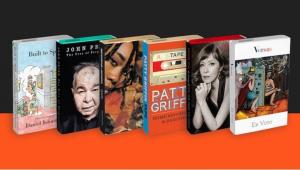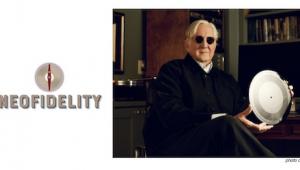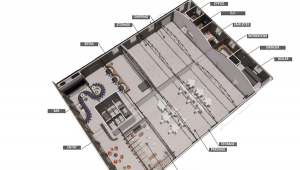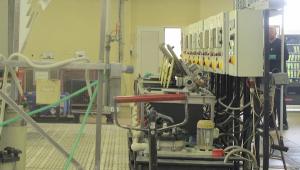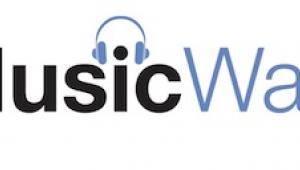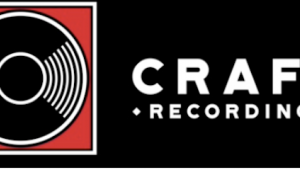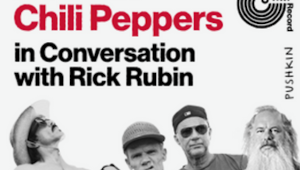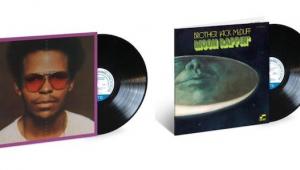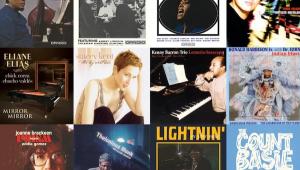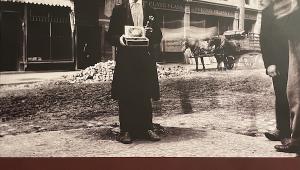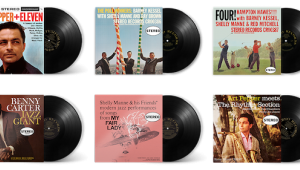Abbey Road 50th Anniversary Edition Heard on a Real Stereo System!
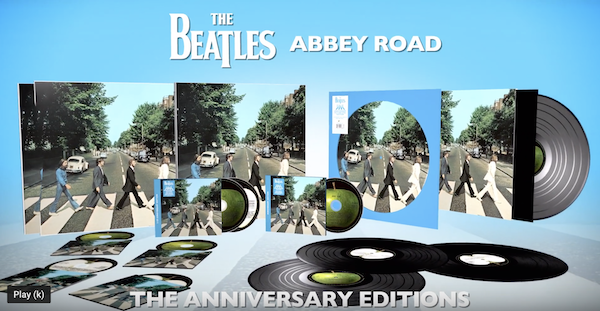
Hayden emailed asking if there was a chance I could return to the screening room on 58th and 6th Avenue for a proper stereo mix listen. He didn't know I was right down the block! Unfortunately time was too tight for me to get up there, listen and return to Innovative for the 5:30PM event start time so Hayden generously offered to bring the set to Innovative so I could listen on a proper hi-fi system, which seemed like the ideal way to listen to any version of Abbey Road.
We sat down in the event room and listened on a pair of Wilson Sasha DAW speakers driven by D'Agostino Momentum monoblocks, a D'Agostino preamp and a Spectral CD player all tethered with Transparent Audio cable. A fine system certainly capable of showing off the goods, and the bads if there were any. There weren't any.
This was not a "studied" listen—there wasn't time—but it was a more reliable one conducted on known gear in a familiar room. What I heard this evening confirmed all of the positive things I'd expressed in yesterday's write-up that for some readers had gotten obscured by the lead-in drama. Giles Martin's intention here was not to "re-invent" an album most fans already consider to be a musical and sonic gem, nor was it possible for him to "fix in the mix" the kinds of technical limitations imposed on the original Sgt. Pepper's.... stereo mix. Instead, based on what I heard both days, Martin chose to subtly bring forward buried elements in the original mix and to better define the bottom end. This was immediately obvious on "Come Together" in which the bass line was more prominent than on the original (regardless of format) and Ringo's kick drum had added weight without losing any definition. So instead of hearing "more bass", I heard a much better defined kick drum that lost none of its original attack or punch. The bass line on the track definitely excited a room mode, but when "Something began, it was gone. As I noted in the previous post, Billy Preston's springy, supportive Hammond organ part is definitely more prominent on the remix, while still sitting comfortably in the song's "pocket". Ringo's rhythmic accents, particularly his cymbal work, find a space instead of getting buried.
Time forced me on to "side two"'s medley and here again there were no major surprises or revisions, just added but unforced clarity. "Here Comes the Sun" retains its cheery airiness with glistening acoustic guitars and the same delicate blend of Martin's orchestration and Harrison's deft synth parts. You wouldn't want to hear that changed, dried or spatially flattened and it's not.
The multi-part, triple tracked harmonies on "Because", flattened in the 2009 remaster, are here as free, open and round as on the original but when you get to "out of college money spent" on "You Never Give Me Your Money", you are sure to like the sound of Ringo's drums and how they better define the song's intent. Ditto the tom accents on "Sun King". The fuzz lines on "Mean Mr. Mustard had the appropriate grit and edge and the hard strums signaling "Polythene Pam" cut as they have to to announce the song.
The overall spectral balance is as warm full and pleasing as the original U.K. first press and if any additional dynamic compression has been applied to make songs on the album "pop" when inserted into a modern playlist, it's been done so subtly as to not be not be noticed—all least I didn't notice any during this admittedly short, somewhat hurried listen. But then, when an album is as ingrained in one's head as this one has been for most of us for 50 years, one quick listen can suffice to produce an accurate accounting.
I'll stick with yesterday's conclusion: if you have an original U.K pressing (with a black inner sleeve, not even the later one with white inner sleeve) you may not need to have this reissue but for everyone else, especially those owning either Capitol's mastering and pressing or the 2009 "by committee" remaster, this 50th Anniversary remix will bring added pleasure to an album that grows better and more precious with age.
When at audio shows I play for a room full of listeners my original pressing either "live" or digitized", the crowd stays for all of side 2 and then, usually teary-eyed, breaks into applause. I think this remix will have the same effect. Based on what I heard this afternoon, I think even the biggest remix cynic will be happy. I'll soon find out! (Full review to follow shortly after the package arrives). P.S.: at the event this evening I played for the crowd my original "top loader" stereo U.K. pressing and the QRP remix pressing. Most people preferred the remix for its more robust and muscular bass, while some preferred the original's airier top end. I like and listen to both.
P.P.S: The best sonic presentations of all of these Beatles reissues were the two for the mono box set, one at Electric Lady Studios, one at The Grammy Theater, both using genuine high performance audio gear. I don't think a film screening room is the best place to showcase music.



